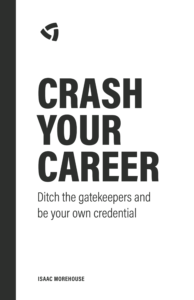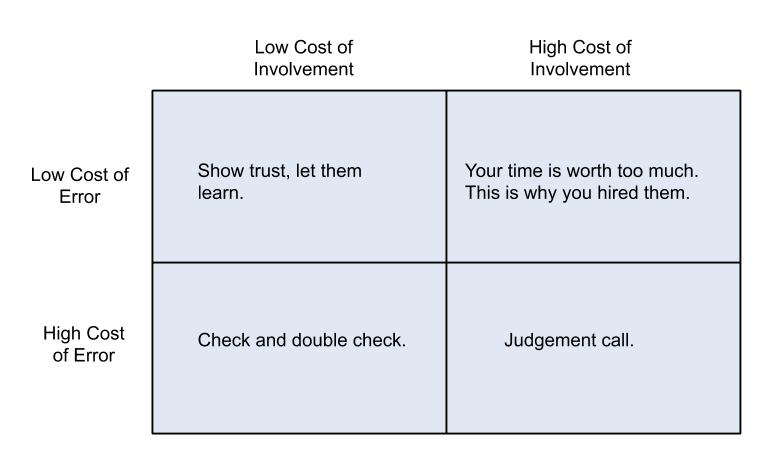Nebraska is the only good album by Bruce Springsteen. But that’s not the point of this post. This post is about death.
For something good to happen, something has to die. Harsh but true.
When you get married, your single self dies. When you become a parent, your childless self dies. When you move into the future, the present dies to the past. Every time.
We see death every day in plants and animals and seasons. Its cyclical nature and preponderance to create something new seem obvious. But it’s harder to see the same process at work in our human lives. We associate death with, well, death. Really, we should associate it with life. For something new to be born, something must die.
This principle is so unavoidable and fundamental that every culture has myths and rituals mimicking it. Apparently, despite its universality and inescapability, we fear and misunderstand it so much that we need to make strange, regular recreations of this principle of nature just so we don’t forget or miss the lessons.
The ancient idea of sacrifices is the crudest and most obvious version, but all cultures are full of less extreme and literal representations of the death-to-life cycle. I remember hearing about a ritual among some African tribes, where adolescents were awakened in the night by masked parents, dragged into the woods, and buried alive. To enter adulthood, they had to dig out of the grave and find their way back to the village.
If you can put aside the oddness and cruelty of the ritual, it’s pretty profound. Adulthood is a kind of death. The ideas, beliefs, habits, frameworks, assumptions, and actions of a child are wonderful. And they must die. If you continue to see the world and the people in it as mostly built around you, owing and freely giving you protection and sustenance, the world will destroy you. If not in body, in spirit. An adult living like a dependent child is a soul-dead existence. To be fully alive as an adult, the child in you has to die.
The cold shock of masked people carrying you off to the woods, burying you, and leaving you to die is quite the metaphor. (The more intense rituals seem to blur the line between literal and metaphorical). It’s an awakening to the fact that the world doesn’t care about you qua you. You won’t be cared for just because you exist. You have to shatter the illusion that you are owed or will be given anything you don’t earn. The ritual is like a hardcore version of this timeless Cracked article.
New vistas, challenges, projects, and adventures beckon. We all talk about them, assume we’ll experience them, and plan for progress. Some people constantly achieve new stuff, while others don’t. It’s not always lack of goals and dreams that keep people from progress. Sometimes it’s fear of death. The difference between a dream deferred and a dream pursued isn’t so much the step into future as the killing of the present. You’ve got to cut the baggage of where and who you are loose and let it sink to the depths before you can become the next version. The old Dr. Who must die for a new one to emerge. (Very sad in the case of David Tennant.)
That’s why I don’t think it helps much when, at some momentous parting, someone says, “This isn’t the end, it’s just the beginning!” No, it’s the end. The status quo is dying. Never to live again. You must accept, acknowledge, and own its death.
Of course it is also the beginning of a new era, and one that’s even better. But to ignore the death part and quickly move to the new part is a mistake. You need to really kill it. Really let it go. If you try to let the old live subconsciously with the new, you’ll tear yourself in two. (You’re welcome for the rhyme). This is why those rituals exist, remember? It’s too easy to try to sneak one past old death. “Yep, nothing to see here, just moving on to be a new version of myself”, meanwhile the rotting zombie of your former self is snarling suspiciously under the desk. Time to take it out back and shoot it.
The reason it’s so hard for us to fully embrace the death step as a precondition to new life is probably because the one kind of death that looms largest for us is one after which we can’t see the next step. We don’t exactly know what happens after our heart stops. The unknown hereafter is a lot to ponder, so we tend to avoid it. This avoidance trickles and seeps into all the lesser forms of death that ought not trouble us so much. Like our physical death, we ignore the other deaths. To our detriment. It gets pretty ugly when you see someone dragging along a bunch of dead versions of themselves, insisting they’re still alive, refusing to bury them and give life to the new.
So, if you want to do cool stuff you’ve got to learn to die. There are all kinds of death, and each new level in each area of life requires a different kind. There’s ego death, reputation death, innocence death, ignorance death, nice guy/gal death, and so many more. A good life is a series of deaths. So you’d better find some ritual or process or belief that helps you make your peace with death so you can burst into life.
And who knows, maybe when you get comfy with lesser death, you won’t fear the big one quite so much either.
Like this:
Like Loading...




